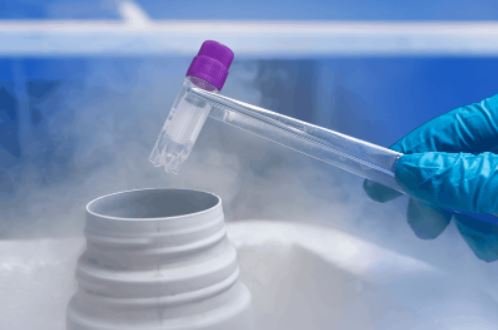What is Egg Freezing And What Are The Risks Involved In It By Dr. Hrishikesh Pai
In this article, Dr. Hrishikesh Pai one of the best doctors in India, who works in a Leading IVF Center in Mumbai talks about “What is Egg Freezing and what are the risks involved in it”
Dr. Hrishikesh Pai is a renowned reproductive doctor. He is well-known and respected not only in India but throughout the world. He is credited with pioneering a number of treatments and procedures that have transformed reproductive therapy in India. He has received more than 50 honors for his remarkable contribution to reproductive medicine.
Egg freezing, alternatively referred to as mature oocyte cryopreservation, is a procedure used to preserve a woman’s capacity to conceive in the future.
Unfertilized eggs retrieved from your ovaries are frozen and kept for future use. A frozen egg can be revived in a laboratory, mixed with sperm, and implanted in the uterus (in vitro fertilization).
Your doctor can explain how egg freezing works, the complications associated with it, and whether this technique of fertility preservation is good for you based on your needs and reproductive history.
Contents
Why is it done?
If you’re not ready to become pregnant right now but want to ensure that you can get pregnant later, egg freezing may be an option.
In contrast to fertilized egg freezing (embryo cryopreservation), egg freezing does not require sperm, as the eggs are not fertilized prior to freezing. As with embryo freezing, you’ll need to induce ovulation in order to develop several eggs for retrieval says Dr. Hrishikesh Pai a premium IVF Specialist in Mumbai.
You may want to consider freezing your eggs if:
You have a health problem or a circumstance that may impair your fertility:
These may include sickle cell anemia, autoimmune disorders such as lupus, and gender diversity, such as transgender individuals.
You wish to save younger eggs in order to use them in the future:
Freezing eggs at a younger age may assist you in becoming pregnant when the time is right.
You can utilize your frozen eggs in conjunction with sperm from a partner or a sperm donor to try to produce a child. A donation may be identified or remain anonymous. Additionally, the embryo can be placed into the uterus of another individual to carry the pregnancy (gestational carrier) notes Mumbai-based Dr. Hrishikesh Pai one of the top IVF doctors.
Risks
Egg freezing presents a number of dangers, including the following:
Conditions associated with the use of reproductive medications include the following:
Occasionally, the use of injectable fertility medicines to stimulate ovulation, such as a synthetic follicle-stimulating hormone or luteinizing hormone, might cause your ovaries to swell and become painful shortly after ovulation or egg retrieval (ovarian hyperstimulation syndrome).
Abdominal pain, bloating, nausea, vomiting, and diarrhea are all signs and symptoms. Even more improbable is the development of a more severe version of the illness, which can be fatal.
Complications associated with the egg retrieval procedure:
Using an aspirating needle to remove eggs may occasionally result in hemorrhage, infection, or damage to the intestine, bladder, or blood vessel.
Emotional dangers:
While egg preservation can increase the likelihood of a future pregnancy, there is no assurance of success.
If you use frozen eggs to conceive, the chance of miscarriage is largely determined by your age at the time the eggs were frozen. Older women have a higher chance of miscarriage, primarily because their eggs are older.
There has been no evidence so far that egg freezing increases the risk of birth abnormalities in babies born as a result of egg freezing. However, additional research is required to determine the safety of egg freezing.
How to prepare?
Dr. Hrishikesh Pai a leading IVF doctor in Mumbai opines that If you’re considering egg freezing, seek out a fertility clinic with experience in the procedure. Specialists are frequently referred to as reproductive endocrinologists.
The Centers for Disease Control and Prevention and the Society for Assisted Reproductive Technology both publish online statistics on the pregnancy and live birth rates at fertility clinics, however, data on pregnancies utilizing frozen eggs is scarce. Bear in mind, however, that a clinic’s success rate is highly variable and is influenced by a variety of factors, including the age of the women it serves.
If the cost of egg freezing is a problem, enquire about the charges involved with each phase of the operation as well as the annual storage fees.
Prior to beginning the egg freezing process, you will almost certainly undergo a series of screening blood tests, including the following:
Examination of the ovarian reserve:
To evaluate the quantity and quality of your eggs, your doctor may do a blood test on day three of your menstrual cycle to determine the concentration of follicle-stimulating hormone and estradiol in your blood. The results can be used to forecast how your ovaries will react to reproductive treatment.
Additional blood tests and ovaries ultrasounds may be done to obtain a more thorough picture of ovarian function.
Results
When you’re ready to use your frozen eggs, they’ll be revived, fertilized with sperm in a laboratory, and inserted into your uterus or the uterus of a gestational carrier.
Your health care staff may recommend intracytoplasmic sperm injection as a method of fertilization (ICSI). ICSI involves injecting a single healthy sperm straight into each maturing egg.
After implantation, your odds of becoming pregnant are between 30% to 60%, depending on your age at the time of egg freezing. The older you are when you freeze your eggs, the less likely you will have a live birth in the future says, Dr. Hrishikesh Pai.


